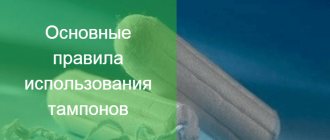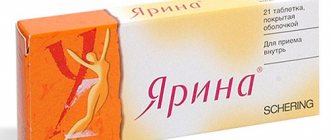Instructions for using Diflucan for thrush, reviews, price, analogues
The subject of consideration is a French-made drug made on the basis of fluconazole, characterized by a wide spectrum of action, instructions for the use of Diflucan for thrush in women.
The active substance of the drug suppresses the vital activity, growth and further reproduction of pathogenic microorganisms, including yeast fungi. Diflucan is used in the treatment of vaginal and genital candidiasis, cryptococcosis, mycosis of the skin, thrush of the oral mucosa, and other pathologies.
Benefits of Diflucan:
- passed clinical trials that had the most stringent requirements. As a result, it has been proven effective in combating fungal infections;
- is available in various pharmaceutical forms, which allows patients to choose the appropriate option;
- It not only suppresses pathogenic microflora, but also blocks the processes of synthesis of steols - the main components of the cell membranes of pathological microorganisms. This allows you to reduce the colony of pathogenic flora and prevent its further reproduction.
What causes vulvovaginal candidiasis?
Why is vaginal candidiasis called “thrush”?
Because the discharge in this disease resembles sour milk.
But about the symptoms a little further.
So, the most common factors that provoke the appearance of thrush:
- Antibiotics. They destroy not only harmful, but also beneficial microbes, including those in the vagina, i.e. lactobacilli. There are fewer of them, they cannot fulfill their protective function, and the fungi begin to multiply intensively.
- Pregnancy. During pregnancy, vaginal candidiasis occurs 2-3 times more often.
Sometimes thrush is a marker of pregnancy, when the test still shows nothing, but the fungus is already right there!
This is explained, firstly, by a physiological decrease in immunity during this period in order to reduce the activity of the immune system, which regards the fetus as a foreign body that needs to be expelled.
Secondly, hormonal changes occur, as a result of which there is too much glycogen in the vaginal cells, and this is also bad. Lactobacilli do not have time to break it down, and it provokes the proliferation of fungi.
- Violation of hygiene rules. This is the use of tampons, which sometimes remain in an intimate place all day, collecting all representatives of the vaginal fauna. This also includes excessive use of antiseptic products not intended for intimate hygiene. They, like antibiotics, destroy everyone, without understanding who is right and who is wrong.
Keep this in mind and tell customers that tampons need to be changed every 2 hours!
Some gynecologists are not only against tampons, but also against panty liners, because they interfere with oxygen access to the intimate area.
- Swimming pools. Chlorinated water dries out the mucous membrane, which leads directly to vaginal dysbiosis.
- Clothes and some toiletries. These are tight trousers and jeans that pinch and rub in intimate places, disrupting blood circulation and reducing local protection. The same applies to thongs.
We already talked about the journey of microorganisms through thongs from point K (intestines) to point B (vagina).
Let's add here panties made of synthetic materials that retain heat and moisture, which is why mushrooms grow as if after rain. So, away with lace sexy lingerie, long live the good old hebeshechki!
- Thrush is often brought from warm countries. Firstly, climate change is stress for the body, as a result of which immunity decreases. Secondly, this means increased humidity in an intimate area if you spend the whole day in a wet swimsuit.
- Hypothyroidism. As you know, the thyroid gland regulates ovarian function. With its hypofunction, hormonal disturbances in the reproductive system are ensured. Little estrogen means little glycogen in the vaginal epithelium. There is little glycogen, lactobacilli have nothing to break down. There is nothing to break down - lactic acid is not formed in the required amount. Lactic acid is not formed - the acidic environment in the vagina is not maintained.
- Love for sweets. It turns out that mushrooms have a terrible sweet tooth. Therefore, during the treatment of candidiasis, doctors advise giving up sweets and starchy foods. For the same reason, thrush often visits diabetics.
- Combined hormonal contraceptives. They are included in this blacklist because they create a lower level of estrogen in the female body than natural.
- Estrogen-containing hormonal preparations for HRT. Here is the other extreme: there is a lot of estrogen, the level of glycogen in the cells increases, it draws water onto itself, the mucous membrane loosens, the pH shifts to the alkaline side. In 20% of women, glucose tolerance changes.
- Glucocorticosteroids, immunosuppressants – i.e. drugs that reduce immunity.
Composition, release forms, price of Diflucan
Diflucan is produced in the form of capsules, powder from which a suspension is made, and a solution intended for drip administration. It is not produced in the form of suppositories or tablets.
In capsules, the dosage of fluconazole is 50, 100 and 150 mg, in powder - 50 and 200 mg, in solution - 2 mg / 1 ml.
We present to the readers the main “pharmacy” guidelines. Gelatin capsules of solid consistency are packaged in transparent contour cells. Prices (in rubles) for different packaging options:
- No. 1 (150 mg) 387–460;
- No. 4 (150 mg each) – on average 950;
- No. 7 (50 mg each) – 865;
- No. 10 (100 mg each) – 3175;
- No. 12 (150 mg) – 1900.
The powder is white or cream in color and is packaged in 5 ml plastic bottles. The price range is 516–590 rubles.
Diflucan solution for injection is transparent, odorless, bottled in glass bottles of 25 ml (average price - 217 rubles), 50 ml (225), 100 ml (310-336 rubles) and 200 ml (average price 680).
With a similar active substance and Flucostat.
Reviews
Reviews about the drug Diflucan:
How much will Diflucan cost in pharmacies?
Diflucan - injection solution 50 ml - from 240 rub.
injection solution 100 ml - from 400 rub.
Diflucan - powder for preparing a suspension 35 ml - from 535 rubles.
The price of the drug in capsules varies depending on their quantity in the package - from 426 rubles (for 1 piece) to 2144 rubles (for 12 pieces).
Diflucan: instructions for use for thrush
How to take for women and men
The daily dose of the drug depends on the severity of the disease and the nature of the clinical manifestations.
How to use? Most often, a single dose (150 mg) is sufficient. An increase in dosage and course duration is indicated for complicated forms of candidiasis and oropharyngeal thrush.
Pregnant and lactating women
The effect of the drug on fetal developmental disorders has not been specifically studied. However, cases have been described when women, being in an “interesting situation,” took large doses for 2-3 months, and they gave birth to children with serious congenital abnormalities, among which are:
- cleft palate;
- heart disease;
- an increase in the length and a decrease in the degree of strength of the bone tissue of the ribs;
- abnormalities of the femurs (curvature, thickening);
- improper formation of the facial skeleton and cranial vault.
Based on the information above, Diflucan is not recommended for expectant mothers . An exception is situations where the expected positive results of therapy exceed the possible probability of developing a threat to the health of the mother and fetus.
Due to the fact that fluconazole is found in breast milk, taking the medicine during lactation is also not recommended.
For children
As with adult patients, the dosage for children and adolescents is selected taking into account the clinical and mycological effects. Daily intake ≤ 150 mg. The method of administration (drip or oral) is chosen strictly by the attending physician. If thrush is localized on the mucous membranes, the child is prescribed 3 mg of the drug per 1 kg of weight per day. The initial amount can be doubled for quick results.
For children with reduced immunity due to various diseases, the daily intake is increased to 12 mg per kg of weight. Due to the longer absorption process of fluconazole, infants are prescribed at intervals of 72 hours.
Attention! Due to the fact that the drug is dispensed without a prescription form, it is important to understand that use without a doctor’s prescription, including a single dose, is unacceptable for older people (over 60 years of age) and those under 18 years of age.
Drugs for the treatment of thrush in men and women
When treating thrush with Diflucan, it is necessary to take into account some features of this drug. The medicine has a fairly active effect, as it is quickly absorbed from the gastrointestinal tract into the blood, all fluids and tissues of the body and instantly reaches the localization of the fungal infection.
The concentration of the drug in the blood after 0.5 - 2 hours corresponds to the dose that was taken orally or administered intravenously. That is why it is effective when the patient has opportunistic and endemic mycosis, generalized candidiasis, and when a cryptococcal infection is detected.
When treating genital thrush in women and balanitis in men with Diflucan, the drug is most often prescribed once, since the half-life of the drug is about 25 - 30 hours. It must be taken into account that high doses of the drug are contraindicated for patients with weakened immune systems or those who have had cancer.
In such cases, for the treatment of genital candidiasis, the use of the drug is prescribed according to an individual scheme until the signs of the disease completely disappear and diagnostic studies confirm the absence of the disease.
Attention! Never buy counterfeit Diflucan tablets and suppositories for thrush, and do not prescribe capsules or suspensions yourself. Medicine knows of fatal outcomes in patients with liver failure.
Tired of thrush?
MONASTERY TEA is the best folk remedy for thrush! If you use it, then...
Diflucan is a medicine from the triazole group, intended for the treatment of candidiasis and other fungal diseases.
Mycoses are a common group of pathogenic formations that affect various areas of the human body. The fungus knows no gender, age or social differences. If you become infected with a fungus, it is important to consult a doctor as soon as possible and begin treatment, preventing mycosis from developing and taking root in the body.
Pharmaceutical companies produce the drug Diflucan in the following forms:
- glass bottle (0.25–0.2 l). Fluconazole concentration is 0.002 g/l;
- white powder for Diflucan suspension. Dosage: from 0.05 to 0.2g;
- Capsules in a white-turquoise shell with white or yellowish powder. Dosage: from 0.05 to 1.15g.
Diflucan belongs to the clinical and pharmacological group of antifungal drugs.
The drug Diflucan is an effective means for localizing and destroying pathogenic formations, which include the main types of fungi known to medicine:
- dermatophytes that affect the hair and stratum corneum of the epidermis;
- dimorphic fungi that develop in both forms.
The main component of the drug Diflucan is fluconazole, which inhibits the synthesis of sterols in fungal cells, which are used to build fungal cell membranes.
The main part of the active substance is excreted from the body throughout the day, allowing you to take the drug once every 24 hours.
Diflucan penetrates the tissues of internal organs and concentrates:
- in the secretion covering the epithelium of the bronchial tree;
- saliva;
- cerebrospinal fluid.
Also, a large amount of fluconozole accumulates in the upper layer of the epidermis.
Thrush infection and the development of candidiasis are associated with a stressful state of the body. The infection affects men, women, and children.
Recommendations for treatment with Diflucan:
- the effectiveness of thrush treatment depends on timely consultation with a doctor and compliance with the therapist’s recommendations;
- take Diflucan in capsules, powder, ampoules for intravenous injection. The mandatory form of the drug for women is vaginal suppositories, for men - cream or gel;
- the dose of the drug depends on the severity and form of the disease. As a rule, the first “load” dose is 400 mg. The following volumes are adjusted by the doctor depending on the nature of the disease;
- Diflucan is used to treat infants by administering the drug intravenously.
Despite the rapid onset of effect after taking the first dose, the minimum course of treatment for thrush is at least two weeks.
Studies conducted in the treatment of thrush with Diflucan have not revealed any obvious side effects, so doctors recommend taking the drug at any age for candidiasis and other diseases of the genitourinary system.
Diflucan is used to treat the following types of fungus:
- candidiasis of the oral cavity and larynx;
- genital and vaginal candidiasis, candidal balanitis;
- endemic mycoses;
- fungus of the feet, groin area, skin, pityriasis versicolor;
- cryptococcosis and cryptococcal meningitis;
- disseminated candidiasis.
Diflucan is also prescribed as a prophylactic against fungi in patients with immunodeficiency syndrome and cancer.
Mode of application
Diflucan is taken orally and introduced into the body by intravenous injection.
Treatment of the fungus begins before the culture result is obtained, with subsequent correction of the course of therapy after the completion of laboratory tests.
The choice of method of introducing the drug into the body depends on the clinical condition of the patient.
Important! The intravenous infusion rate should not exceed 10 ml per minute.
When switching from injections to the oral route, the daily dose of the drug remains unchanged.
The injection solution contains 0.9% NaCL, which should be taken into account when administering the drug intravenously to patients with limited sodium intake.
The daily intake of Diflucan depends on the form and severity of the disease. Thus, for vaginal candidiasis, a single dose of the drug is practiced. Treatment of other types of mycoses continues until the visual and clinical consequences of the disease disappear, followed by confirmation of the results by laboratory tests.
Comprehensive treatment of thrush is of great importance, as it can significantly improve the condition of women's health and reduce the recurrence of this disease. A disease such as thrush or candidiasis of the vaginal mucosa is known to almost every woman. In some patients it even becomes chronic.
Unfortunately, sometimes treatment for thrush is ineffective, which can be caused by self-administration of medications. After a woman fell ill with candidiasis, she went to the doctor, who prescribed her an effective antibiotic to treat candidiasis.
When the situation repeats itself and a woman starts having thrush again, she goes to the pharmacy on her own and purchases the same medicine. However, in this case, the drug will not be as effective, since the body will already have time to develop strong immunity against its constituent components.
Such an unfavorable factor as a negative effect on the body also affects:
- frequent stressful situations;
- unfavorable environmental conditions;
- poor diet;
- hormonal imbalances;
- increased radiation.
All these factors explain that with each development of thrush, treatment with more powerful antibiotics and other medicinal compounds is required. It is worth knowing that it is not required if the cause of the disease is pregnancy, the use of hormonal contraceptives, as well as drugs that were used to treat infectious and viral pathologies.
The main causes of thrush:
- diseases related to gynecology;
- malfunction of the thyroid gland;
- sexually transmitted infections;
- weakening of the immune system.
In all these cases, you first need to completely cure the disease that caused candidiasis and only after that do you begin complex treatment of thrush in women.
In order to answer the question of how to properly treat thrush, it is important to note that it is impossible to completely get rid of Candida fungus. Any medications, as well as special treatment procedures, can only stop the development of the disease and prevent relapse.
How to take for chronic form and for prevention
In order to prevent exacerbation of candidiasis, Diflucan is prescribed once a month, 150 mg. The duration is determined by the doctor (varies from 4 months to a year). In some cases, an increase in the dose and interval between doses is required.
Chronic thrush is said to occur when symptoms occur at least 4 times a year. In this case, therapy according to a special scheme, determined by a specialist, will help. Most often this works: 1st day - 150 mg, 4th - the same dose again. If symptoms appear again, the prescription is as follows: 150 mg on days 1, 4 and 7. In special cases, when candidiasis “stubbornly refuses to disappear,” 150 mg per week is prescribed for several months.
Intestinal candidiasis - diagnosis
Diagnosis of intestinal candidiasis in the initial stages is difficult, so the examination must be comprehensive. Early diagnosis allows you to quickly begin treatment and suppress the massive growth of Candida in a short time. Examination methods for suspected intestinal candidiasis:
- Visual examination by specialists, medical history collection, identification of complaints.
- Stool analysis. In case of intestinal candidiasis, feces are submitted for bacterial culture in order to determine the amount of Candida albicans and identify sensitivity to antifungal drugs for treatment.
- Urine analysis to detect D-arabinol (a waste product of fungi). A high rate indicates the active development of the disease.
- Blood test for antibodies. A high level of immunoglobulins in the blood indicates the process of fungal proliferation.
- Histological and cytological examination of a piece of mucous membrane to identify pseudomycelium.
- X-ray of the intestines.
- An endoscopic examination, which helps to assess the condition of the mucous membrane, the presence of erosions, ulcers with a white coating. Carried out using a probe:
- colonoscopy - examination of the large intestine;
- fiberoscopy – examination of the small intestine with biopsy
When will Diflucan not have the desired effect for thrush?
The drug in question is one of the most effective drugs for candidiasis, however, some patients are faced with a situation where taking it is ineffective. This happens for various reasons.
- In case of relapse of the disease. At first there was an improvement, and then an exacerbation followed. Provoking factors: strong emotional disturbances and promiscuous sexual intercourse.
- With the wrong approach to the choice of therapy, in particular the scheme and duration of the course, single and daily dose. Most often, this phenomenon is observed when visiting an unqualified doctor or self-medicating.
- In the presence of chronic pathologies that occur hidden in the body. Diseases of this kind lead to a weakening of the immune system and prevent the rapid cure of thrush. The active substance, form and dosage of the drug in such situations do not matter.
- With a very advanced form of candidiasis. This stage of the disease occurs when a person not only did not undergo appropriate diagnosis and treatment in a timely manner, but also did not consult a doctor with this problem in principle.
When will thrush go away after treatment?
Have you been fighting thrush for many years without success?
Head of the Institute: “You will be amazed at how easy it is to cure thrush by taking it every day.
When the first signs of thrush appear, you should immediately go to the doctor. Despite the fact that the disease is not a dangerous disease, it requires the right treatment approach. After all, otherwise, it will be possible to wait for candidiasis to turn from an acute form into a chronic form. When a doctor prescribes treatment, many people wonder how long it will take for thrush to go away.
If you experience acute first symptoms of thrush, your doctor will prescribe a comprehensive treatment. It includes a single dose of a general action tablet, as well as vaginal suppositories (creams or ointments, if candidiasis is treated in men). The time it takes for the disease to pass varies, but on average it takes 1-2 weeks.
About complex therapy
As a rule, for the treatment of vaginal candidiasis or this disease in men, the doctor prescribes a mandatory one-time dose of the “Diflazon” tablet (other names “Difluzol”, “Flyuzak”, “Futsi”). In the normal course of thrush, it is enough to take one tablet at a dose of 150 mg, but in advanced forms treatment is required for three days. This is general therapy, but it alone will not allow you to determine how long it will take for thrush to go away.
Local treatment plays a particularly important role. It lies in the fact that the drug is directly applied to the mucous membrane and affects the pathogenic environment. In particular, women are prescribed vaginal suppositories, and men are prescribed ointment or cream. This therapy lasts up to ten days. By the end of therapy, the thrush should go away. That is, the total time it takes for thrush to go away takes an average of two weeks. Do you know whether sexual activity is allowed if you have thrush?
If candidiasis does not go away
Most often, symptoms of candidiasis disappear within two weeks of treatment. Even with a chronic course of the disease, remission occurs. But sometimes the period for how long the thrush goes away is not respected, and after the end of the course of treatment, the inflammatory process with all its symptoms is still observed. What could be causing this?
Weak immune system
Moreover, this may not concern the general immune system of the body, but the local one. For example, vaginal protective factors are weakened. In such a situation, thrush will not go away on its own, so additional measures will need to be taken to treat it.
Wrong therapy
If you use only local remedies for treatment, even popular folk methods for treating thrush, then you will not be able to get rid of thrush completely. It is also important to take medications that are well absorbed from the gastrointestinal tract, providing an overall healing effect. Sometimes patients take the medicine for less time than the doctor prescribed. This may also be the reason why thrush does not go away after two weeks of treatment. Also in this group of reasons are cessation of therapy and lack of preventive measures.
Pathogen resistance
Antifungal drugs are prescribed by a doctor, usually with a general spectrum of action. In 90% of cases, they hit the target, but sometimes the disease is caused by other types of Candida fungus, which conventional drugs cannot kill.
Vaginal hypersensitivity
There is no need to explain anything here. This is a kind of allergic reaction, which explains why the time it takes for thrush to go away increases. Here you will need to undergo additional examination and be under constant supervision. Do you know why thrush appears in a nursing mother?
Self-medication
In all articles on our website, we emphasize that treatment should only be prescribed by a doctor. Regardless of whether traditional or traditional medicine methods are considered. Self-medication will only lead to aggravation of the disease and the transition of acute thrush to its chronic form.
If the thrush does not go away after two weeks of treatment with the drugs prescribed by the doctor, then it is necessary to undergo a re-examination. It will help identify the cause of unsuccessful treatment and adjust the entire course in order to ultimately achieve recovery or simply a long period of remission.
Sources:
https://webmolochnica.ru/diflyukan-otzyvy.html https://bezkandidoza.ru/preparaty/tabletki/diflyukan-ot-molochnitsy.html https://molochnica-zud.ru/lechenie/cherez-skolko-posle- prinyatiya-diflyukana-prohodit-molochnitsa/
Analogues of Diflucan for thrush
- Difluzol
One of the cheap substitutes (average price of 1 capsule / 150 mg - 240 rubles). It is characterized by high efficiency and a slow process of elimination from the body, which makes it possible to use it once, even in acute cases of the disease.
The disadvantage is the possibility of individual intolerance to the main and auxiliary components.
- Diflazon
Pros: low cost (1 tablet - 245 rubles) and the availability of a large selection of dosages.
The disadvantages include the inconvenience of the tablet form of the drug for young children, as well as the high rate of absorption.
An even cheaper analogue, the average price is 200 rubles. But Diflucan is an original medicine, characterized by widespread use and an extensive evidence base, and Mikomax is a generic (a copy without comprehensive clinical trials) with a rather modest history. However, as a substitute, it effectively suppresses fungal colonies, including those belonging to the genus Candida.
Diflucan: effective help for thrush
The antimycotic drug Diflucan is prescribed for the treatment of candidiasis. The proven medicine has proven its antifungal effectiveness and safety for health. Thanks to its complex action, the product relieves unpleasant symptoms and eliminates the pathogens themselves.
The method of using Diflucan for thrush in women is described in detail in the instructions, but it is advisable to discuss the dosage regimen and dosage with your doctor. With proper treatment with the participation of a specialist, the likelihood of relapse is excluded.
Diet for intestinal candidiasis
Nutrition for intestinal candidiasis should be gentle and careful, but balanced. Drug treatment will be successful if you follow a diet, and to regain health you will have to sacrifice your favorite bad taste preferences. In an integrated approach: antifungal therapy and proper nutrition, intestinal candidiasis is treated, the symptoms subside and remission occurs.
What should you not eat if you have intestinal candidiasis?
It is important to begin treating candida fungus in the intestines by reviewing your diet. A person is what he eats, this has long been known to everyone. Products contraindicated for intestinal candidiasis:
- sugar (lactose, glucose, fructose);
- juices from tetra packs;
- flour, yeast products;
- alcohol;
- kvass;
- honey;
- blue cheeses;
- lemonade;
- sweet fruits (grapes, bananas);
- marinades;
- smoked products;
- Black tea;
- coffee.
What can you eat if you have intestinal candidiasis?
For candidiasis, food should be medicine. How to treat candida fungus in the intestines with food, what foods should it be? Healthy foods for candidiasis:
- homemade chicken eggs, boiled soft-boiled or in the form of an omelet;
- fermented milk products (kefir, fermented baked milk, yogurt);
- lean meats (chicken, beef);
- vegetables with a low glycemic index (cucumbers, broccoli and cauliflower, eggplant, zucchini, tomatoes);
- greenery;
- cereals (rice, buckwheat);
- apples;
- berries (sea buckthorn, currants, cranberries).
Composition and pharmacological action
Diflucan, like most anti-candidiasis medications, is based on fluconazole. The antibacterial component is the most important and active participant in the treatment of candidiasis in women. This substance helps to quickly eliminate symptoms and alleviate the condition.
The drug has excellent antifungal potential. The pharmacological properties of fluconazole for thrush appear regardless of the form of the drug. Once in the blood, the substance blocks metabolic processes in fungal cells. This affects the activity of microorganisms and stops their reproduction. As a result, the causative agents of the disease die, and the body begins to function normally.
Medicine for thrush for women is available in the form of capsules, powder and solution for injection. Regardless of the form, the drug base is the substance fluconazole.
Diflucan capsules are most often prescribed for the treatment of candidiasis. They are easy to use, well absorbed into the blood and distributed into the body tissues. Depending on the size, the capsules contain from 50 to 150 mg of fluconazole.
Diflucan also contains excipients. The solutions, in addition to the main active ingredient, contain water and sodium chloride. The suspension contains sucrose and citric acid. These components enhance the pharmacological effect, provide bioavailability and participate in maintenance therapy.
Description
As a therapeutic component, Diflucan contains fluconazole, which exhibits antifungal activity.
The advantages of the substance include the following:
- The product selectively blocks the formation of sterols in the fungal cell, as a result of which their growth stops.
- After oral administration, the medication is well absorbed and after a maximum of 1.5 hours the highest concentration of the drug in the blood is reached.
- The half-life of the drug is 30 hours, which allows it to be taken once a day.
- You can take the medicine at any time of the day, regardless of food.
How quickly does Diflucan work for thrush?
Many of the antifungal drugs are powerless against pathogenic microorganisms and only relieve discomfort. Diflucan for thrush successfully copes with harmful fungi, regardless of species.
Sometimes one capsule is enough for treatment. Such speed of action is possible in the acute stage of the disease. When chronic candidiasis is diagnosed, longer treatment is required. In any case, Diflucan relieves a woman of an uncomfortable and unpredictable problem.
The effectiveness of treatment depends on the characteristics of the medication. The easiest and most convenient way is to use Diflucan capsules. When taking 150 mg of the drug, improvements are observed after 30 minutes to an hour and a half.
In the acute stage of thrush, Diflucan begins to act almost immediately, but basic therapy is not applicable in all cases. The rules of administration and dosage vary depending on the severity of the disease.
If candidiasis was diagnosed for the first time, a single use of Diflucan is sufficient. Enhanced treatment regimens are used when symptoms are severe and complications are identified. The duration of taking the drug is determined by the doctor. If the daily dose (150 mg) is exceeded, the maximum concentration of the substance in the blood plasma is reached by the 2nd day.
Directions for use and doses
Diflucan against thrush is prescribed only after thrush has been diagnosed. The disease has many types and forms. It is difficult for an ordinary person to understand this and correctly assess the condition.
In the case of Diflucan, studying the instructions for use for thrush is not enough. It is advisable to familiarize yourself with the information, but the dosage for women and the duration of treatment are calculated by the doctor. This is done taking into account age and weight, studying the symptoms and clinical features of the disease.
Regimen for taking Diflucan for thrush are individual. Let's consider the main treatment options depending on the severity of the disease:
- Mild forms of thrush are treated with one Diflucan capsule (150 mg). A single use of the drug is acceptable for infrequent episodes of candidiasis and the absence of provoking diseases (immunodeficiency, diabetes mellitus, etc.). Itching, discharge and burning stop, but may recur. If symptoms return after 3-4 days, you can take another capsule of the same dosage. In the early stages of the disease, with irregular doses, the probability of a complete cure is 80-90%. These figures are provided by the drug manufacturers, relying on the experiments conducted and the results obtained.
- When candidiasis is accompanied by fungal infections of internal organs and skin, as well as when microorganisms are detected in the blood, the first dose is 400 mg. The next dose is 200 mg. The minimum course of such treatment lasts a week.
- Thrush, which recurs 2-3 times a year, is treated for six months. Capsules (150 mg) are recommended to be taken intermittently, 4-5 times a month. To prevent thrush, another dose of Diflucan (150 mg) is prescribed at the beginning of the menstrual cycle.
- In advanced stages, when candidiasis becomes chronic and appears more than 4-5 times a year, a more serious approach and long-term treatment are required. Doctors prescribe courses. Depending on the frequency of relapses, 4, 12 or 24 capsules are prescribed.
The product is taken orally with water. You can take Diflucan at any time of the day before or after meals (no connection with food intake has been established).
In addition to capsules, solutions for internal injections and powder for suspensions are used to treat thrush. These forms of medication are recommended for the chronic stage of the disease. In difficult cases, unauthorized admission is unacceptable. The course of treatment and dosage are prescribed by the doctor.
When treating a disease, you need to take the medicine as much as the doctor advised. Do not exceed the duration of use, as the antifungal agent tends to accumulate in the body. Premature withdrawal from the drug is also dangerous. Untreated thrush leads to regular relapses.
Contraindications
The drug Diflucan is quickly absorbed and excreted from the body without disturbing the functions of tissues and organs. If you follow the dosage regimen, complications are excluded. Side effects are possible with uncontrolled use and exceeding the dosage.
Possible problems with appetite, nausea, headaches, bowel dysfunction, decreased performance, abdominal pain, liver problems, hallucinogenic behavior. Such cases are rare, but everyone should be aware of the possible consequences.
Admission is contraindicated for elderly people (over 65 years of age) and children under 3 years of age, with individual intolerance to fluconazole and allergic reactions. It is not recommended for pregnant and lactating women to take the medicine.
Please note if you are taking the following medications
The simultaneous use of Terfenadine, Cisapride and Rifampicin with Diflucan is prohibited due to the risk of heart rhythm disturbances.
During treatment with the drug, you should not drink alcohol: this will increase the risk of side effects.
When choosing a product, it is important to know that there are no Diflucan suppositories for thrush. If such forms are on sale, most likely it is a fake. For safety's sake, please refrain from purchasing.
Storage conditions and periods
Store Diflucan tablets at temperatures below 30°C, away from moisture and heat.
Avoid exposure to direct sunlight. Dry powder can be stored at room temperature. The prepared suspension can be placed in the refrigerator at temperatures from 5 to 30°C, but the liquid must not be allowed to freeze.
The shelf life of Diflucan capsules and solution for infusion reaches 5 years.
The powder for preparing the suspension can be stored for no more than 3 years. The prepared suspension should be used within 2 weeks; after this period it is not recommended to take it.
Diflucan analogs
Analogs of Diflucan for thrush help get rid of this unwanted disease. There are many of them, let’s highlight the most popular and in demand:
- Diflazon;
- Mycomax;
- Vero-Fluconazole;
- Medoflucon;
- Disorel-Sanovel;
- Maiconil;
- Fluzol;
- Ciskan;
- Nofung;
- Flucostat.
Substitutes for Diflucan are cheaper, especially if they are domestically produced drugs. The analogues act identically and have the same pharmacological purpose. They are effective in the treatment of thrush and are used in cases where pathogens become addicted to fluconazole and the active substance does not help.
Not all cheap analogues of Diflucan are safe. They also have contraindications and side effects, so the issue of replacing the medication should be discussed with a doctor.
Similar drugs
There are analogues of Diflucan for thrush containing fluconazole in the same dosage. The difference between Diflucan and similar drugs lies in the manufacturer and price . Domestic medicines are cheaper than imported ones, and the patient decides which analogue to choose, depending on his capabilities.
Patient reviews of the medicine vary. Some believe that the effect of analogues is no worse than that of the original. Others say that Diflucan is the most effective drug for thrush.
Unlike cheap analogues, Diflucan can be used to treat candidiasis in pregnant women if the need arises, and, for example, the drug Fluconazole is strictly prohibited during this period. This is due to the fact that the imported medicine has undergone a large number of studies and is guaranteed to cause less harm than domestically produced tablets.
How to take Diflucan correctly for thrush
Thrush occurs at the most inopportune moment and causes a lot of discomfort. According to statistics, candidiasis occurs more often in women, but men are also susceptible to this disease. The fungus can even occur in an infant if the mother was unable to get rid of the fungus during pregnancy. Diflucan for thrush is considered the most effective and safe remedy ; it is prescribed to men and women, and can be used in childhood (after consultation with a doctor).
For the medicine to be effective, you must follow the instructions and recommendations of your doctor. Diflucan can only be taken as prescribed by a doctor. Self-medication threatens the disease to become chronic.
Indications for use
The active ingredient of Diflucan - fluconazole - is effective against a yeast-like fungus that causes vaginal candidiasis, thrush on the oral mucosa, skin mycoses, and pityriasis versicolor.
Diflucan is prescribed for the prevention of fungal infections in malignant tumors and long-term treatment with antibiotics. The drug is indicated for people with immunodeficiency diseases and cancer, since their risk of developing fungal diseases is higher than other people.
Before taking Diflucan for thrush, you should visit a doctor and confirm the diagnosis. In case of extensive lesions and severe inflammation, the drug can be prescribed until test results are obtained; if it turns out that the causative agent of the disease is not of fungal origin, then Diflucan should be discontinued.
The active substance acts only on fungi, slowing down their metabolism, which leads to the death of microorganisms. Once in the body, fluconazole has virtually no effect on the cells of the body, is very quickly absorbed into the blood and reaches a therapeutic concentration within one hour after administration.
Diflucan does not have a detrimental effect on beneficial bacteria in the body and does not cause dysbacteriosis. The effect of treatment occurs very quickly - the very next day the itching subsides and the curdled discharge noticeably decreases.
Intestinal candidiasis - causes
Candida albicans is a parasitic single-celled fungus common in the environment. Candida is very hardy, and the most comfortable living conditions for it are temperatures from 20° C to 37° C and pH 6-6.5. Of all the existing fungi of the genus Candida that parasitize the human body (there are more than 10 species), albicans is the culprit of candidiasis in 90% of cases. Candida fungi in the intestines are opportunistic and when the immune system is functioning well, they are found in the form of harmless spores.
Why do these seemingly harmless fungi begin to multiply in huge quantities, causing serious systemic diseases such as intestinal candidiasis, the symptoms of which are clearly manifested in children and adults?
Reasons for the development of candidiasis:
- decrease in the body's immune forces;
- poor nutrition (predominance of refined foods rich in starches and easily digestible carbohydrates);
- unfavorable living conditions (unsanitary conditions);
- antibiotic treatment;
- stress factors;
- severe diseases that impair immunity (AIDS, hepatitis);
- tumor-like growths in the intestines;
- autoimmune diseases;
- allergies;
- organ transplantation and the associated use of immunosuppressants;
- hormonal disorders.
Invasive intestinal candidiasis
There are 2 forms of invasive candidiasis: focal, when candida in the intestine invades focally into a certain area of the intestinal wall, and diffuse form, in which a large area of the intestinal mucosa is affected with fungal filaments growing into the thickness of the wall. Causes of invasive forms:
- persistent decrease in immunity due to diseases (late stages of AIDS, hepatitis C);
- massive radiation and chemotherapy for cancer;
- existing pathologies of the gastrointestinal mucosa.
Invasive candidiasis is considered a severe form, in contrast to non-invasive candidiasis. In the diffuse form, irreversible processes often occur for the body:
- penetration of fungal spores into the bloodstream and spread through the bloodstream throughout the body;
- Germination Cand >
In most cases, the Candida fungus in the intestines is located on the mucous membrane without penetration into its walls and multiplies in the intestinal lumen - this form of candidiasis is called non-invasive. The reasons for the development may be:
- dysbacteriosis;
- mixed infections (fungal-bacterial, fungal-viral).
Uncontrolled proliferation of fungi is accompanied by pathological processes:
- release of poisons by fungi (decomposition products, toxins that have a detrimental effect on the intestinal mucosa and inhibit beneficial saprophytic bacteria);
- development of mycotic allergy (systemic reaction of the body);
- development of secondary immunodeficiency.
How to take the medicine
The drug is available in three forms: capsules, powder for suspension and solution for intravenous administration. To treat thrush, capsules are prescribed, and for extensive fungal infections of internal organs, preference is given to an injection solution. Young children are allowed to take Diflucan only in the form of a suspension; the dosage is calculated by the doctor, taking into account the child’s weight.
“The suspension is prepared in accordance with the instructions. You cannot deviate from the treatment regimen recommended by your doctor. Exceeding the dosage in childhood can cause poisoning. If there are signs of intoxication, you must call an ambulance.”
To get rid of thrush in adults, one capsule dose of 150 mg is enough. Sometimes they drink a second capsule after 3-4 days to ensure that they get rid of the fungus and avoid a relapse.
You can take Diflucan for thrush at any time of the day, regardless of meals, with plenty of water.
There are other treatment regimens for candidiasis:
- For frequent relapses of vaginal candidiasis and fungal balanitis, 150 mg is prescribed. once every 30 days for 3-6 months.
- If thrush is accompanied by fungal infections of the skin and internal organs, or fungi are detected in a blood test, the initial dose is 400 mg, and in subsequent days 200 mg. once a day. The duration of the course is determined by the doctor, but the minimum course is 7 days.
- To prevent thrush in patients with cancer or AIDS, they are prescribed to drink 150 mg. once a week.
- For fungal infections of the upper respiratory tract, Diflucan is prescribed to prevent thrush at a dose of 50-100 mg once a day. for 2 weeks.
- For diseases of the oral mucosa, it is necessary to take the drug in a dosage of 50-10 mg once a day. The course depends on the affected area - from 7 to 14 days.
When treating thrush in children with Diflucan, the dosage should be selected correctly. On the first day, it is possible to take a “shock” dose of 6 mg/kg. per day. In the following days - 3 mg/kg. once a day. If for some reason oral administration of the drug is not possible, it must be replaced with an IV solution, the dosage remains unchanged.
Price and substitutes
You can buy the medicine in capsules without a doctor's prescription. How much Diflucan costs depends on the number of pieces in the package and the specific pharmacy. The price of 1 capsule at a dose of 150 mg is about 400 rubles, 4 pieces - 1000 rubles, 12 pieces - 2000 rubles.
There are cheaper analogues of Diflucan on sale:
These medications are also available in capsules for oral administration and contain fluconazole as a therapeutic agent. They have the same contraindications as Diflucan and cause similar adverse reactions. They may differ from each other in the composition of inactive components, which should be taken into account by women prone to allergies.
In some women, thrush is caused by microorganisms resistant to Diflucan, in which case other antifungal agents are required.
You can replace the capsules with the following effective medications:
- Nystatin. Medicine for the treatment of candidiasis is used in the form of tablets and vaginal suppositories. How to take Nystatin tablets depends on the severity of the clinical picture. You need to drink the drug 250 thousand units up to 8 times a day or 500 thousand units up to 4 times a day for 10-14 days. For chronic thrush, the medicine is taken again after 2 weeks. Suppositories are inserted into the vagina in the morning and evening.
- Clotrimazole (Candide, Kanison, Candibene). To treat thrush, the medication is available in the form of tablets and cream, which are inserted into the vagina. The drug should be administered once a day at a dosage of 100 mg for 6 days or at a dosage of 200 mg for 3 days. Clotrimazole is contraindicated in the first trimester of pregnancy; in later stages, as well as during lactation, it can be used with caution.
- Medicines based on Natamycin (Pimafucin, Pimafucort). For the treatment of thrush, drugs are available in tablets for oral administration and vaginal suppositories. The medicine is taken orally at a dose of 100 mg 4 times a day. The suppositories are inserted once a day for 3 to 6 days. The drug, unlike Diflucan, is approved at any stage of pregnancy and during breastfeeding. Fungal resistance to natamycin does not develop.
What are the contraindications?
Even if the medicine is prescribed by a doctor, you should carefully study the instructions to make sure there are no contraindications and to know the possible reactions of the body.
Like any other medicine for thrush, Diflucan has its contraindications for use. The main contraindication is hypersensitivity and intolerance to the active substance, as well as to other drugs similar in structure to fluconazole.
List of contraindications:
- Children under three years of age should not take Diflucan in capsule form.
- Lactation period.
- Lactase deficiency.
- Galactose intolerance.
- Fluconazole intolerance
It is possible to use Diflucan during pregnancy, but only as prescribed by the attending physician, if it is not possible to take milder medications. A single dose of the medicine will not harm the fetus, but if a pregnant woman takes medications with fluconazole for a long period, the child may develop congenital pathologies: abnormal structure of the facial and femoral bones, cleft palate and heart defects.
Diflucan should not be taken with medications containing the following substances: erythromycin, pimozide, quinidine, terfenadine, cisapride, astemizole . Using these substances together with fluconazole may cause adverse reactions and affect the concentration of drugs in the body.
The drug is prescribed with caution for liver and kidney dysfunction. The patient needs to warn the doctor about the presence of chronic diseases so that effective tablets for thrush can be selected correctly.
Pfizer antifungal drug Diflucan
Great, but there are cheaper analogues
The antifungal drug Diflucan is excellent for thrush. It is enough to take just one tablet, the next day the result will be noticeable. More precisely, on the contrary, everything will pass. The tablets themselves are very convenient to take. Their dosage is 150, thus, just one tablet is enough. However, they are sold as 1 tablet in a blister. Also, this medicine can be found in absolutely any pharmacy (unlike the analog fluconazole). But overall, the medicine is of excellent quality. I try to buy fluconazole myself. It costs no more than 50 rubles. However, it is not always available in pharmacies, but it should be. If there is no fluconazole, then I choose Diflucan. However, before using Diflucan, you need to consult a doctor; you may not need it at all. After all, fluconazole has a separate spectrum of action; it may well not act on some fungi. Better yet, get tested for bacterial culture; it will definitely determine which remedy will cure the disease forever. If yeast is detected in the smear, fluconazole or its analogues will be prescribed.
Expensive, but fast and effective!
Thrush is one of the most common diseases in women. Diflucan was recommended to me by a middle-aged woman with whom I worked together. In general, judging by the instructions, one dose is enough to cure thrush. I take it that way, but when I have acute thrush, I prefer to take a capsule once a week for prevention. To say this for sure.
I usually take the pill in the evening, before going to bed, and in the morning there is no itching, there is also little discharge, it doesn’t end immediately, but it’s just like leucorrhoea, not flakes)
Possible side effects
Diflucan capsules have low toxicity and are usually well tolerated, but some patients experience the following adverse reactions:
- Dizziness, headaches, convulsions, tremors, taste disturbances, insomnia, drowsiness.
- Diarrhea, constipation, flatulence, abdominal pain, vomiting, dry mouth.
- Arrhythmia, tachycardia.
- Skin rash, alopecia, increased sweating.
- Disturbances in the chemical composition of the blood.
- Myalgia.
- Various manifestations of allergies.
Side effects rarely occur with a single dose of the capsule; their appearance is influenced by long-term treatment of severe fungal diseases. If such reactions occur, the patient should consult a doctor to adjust the prescribed treatment. After discontinuation of Diflucan, side effects disappear within one to two days.
Candida fungus in the intestines - symptoms
In the initial stages of non-invasive candidiasis, it is difficult to find out that candida is rampant in the intestines, the symptoms of which may be subtle and similar to the manifestations of other diseases. Later, the body signals about trouble with the following symptoms:
- moderate intoxication of the body;
- flatulence;
- feeling of discomfort in the abdomen;
- normal stool alternates with diarrhea with pieces of undigested food or constipation;
- allergic manifestations on the skin in the form of dermatitis;
- spasmodic pain in the lower abdomen;
- itching of the anal passage.











